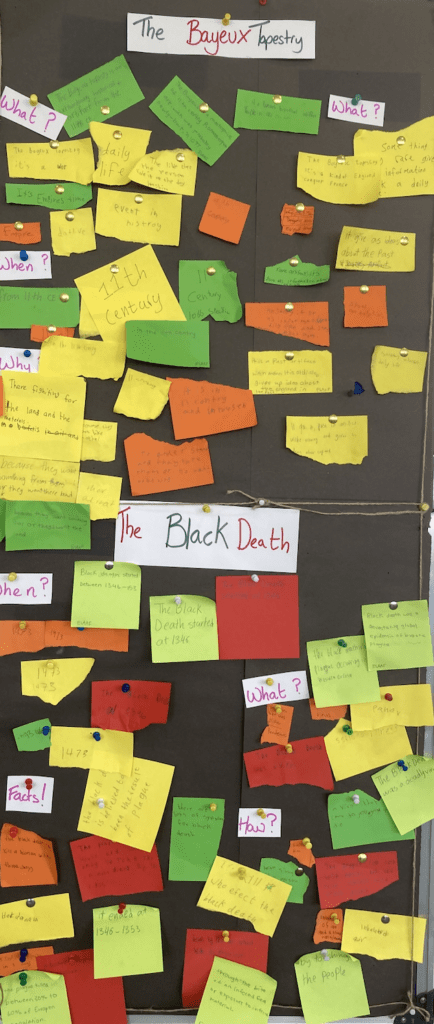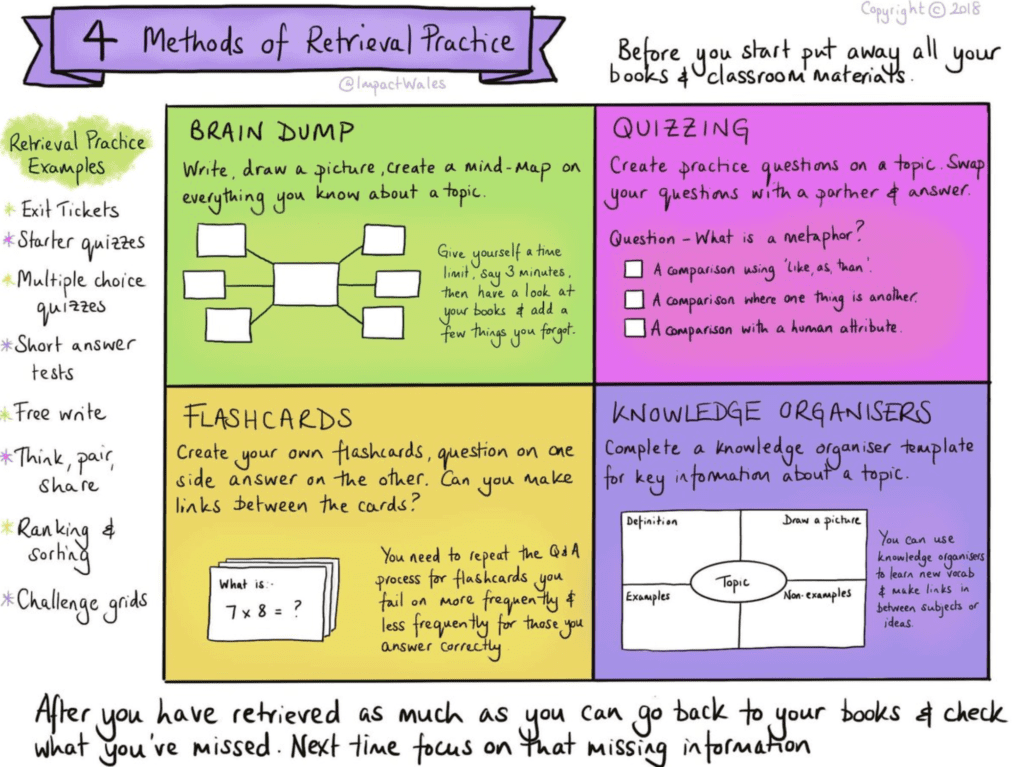Amongst the many strategies we employ to learn language in Grade 7, one that was both challenging and fun recently was a timed retrieval practice. Students had 1 minute to respond to an oral question about a topic we had explored a few days before. They had to quickly write a phrase or sentence response to concrete questions about an event from Medieval History. When we moved into exploring that topic again the next day, we were able to target gaps and strengthen understandings about features of the historical event. For example, this activity helped reveal the fact that students were having difficulty distinguishing between the Norwegians and the Normans … once we figured that out we just had to untangle the Normans from the Saxons!
Retrieval Practice is a bit of a buzzword in teaching circles at the minute, but it is not a new concept by any means. When we actively try to recall information from memory, it strengthens brain connections and makes the sought after knowledge stick around for longer. For language learners, spaced-out learning events in tandem with retrieval exercises, can really scaffold acquisition of vocabulary, grammar, and sentence structures. Depending on how it is structured, the strategy can strengthen meta-linguistic understanding and promote spontaneous language use. It can also highlight for students what they don’t know yet, so they can focus on learning those parts next. Retrieval practice supports literacy and listening comprehension and students get the opportunity to apply their linguistic skills to different situations.


